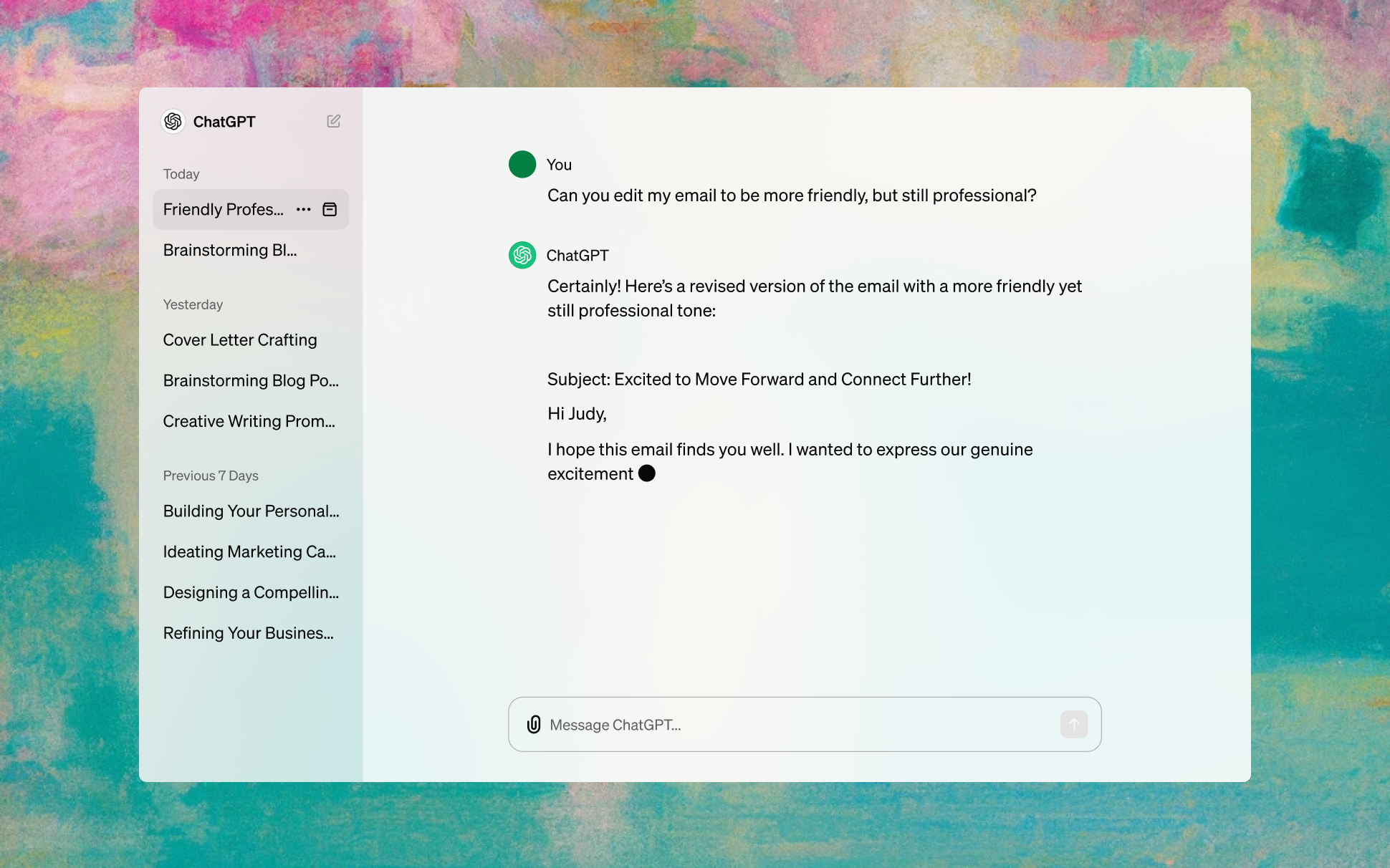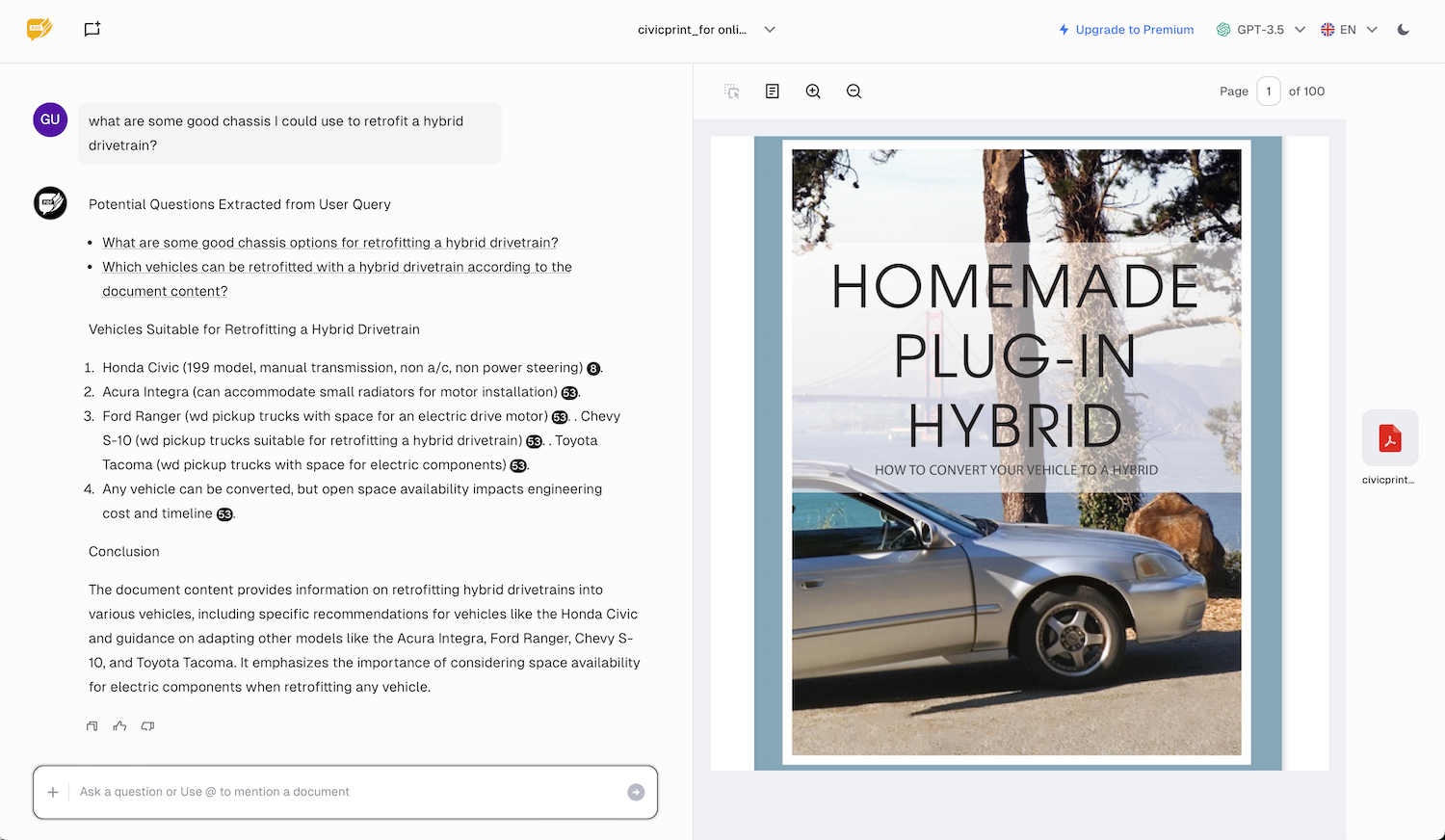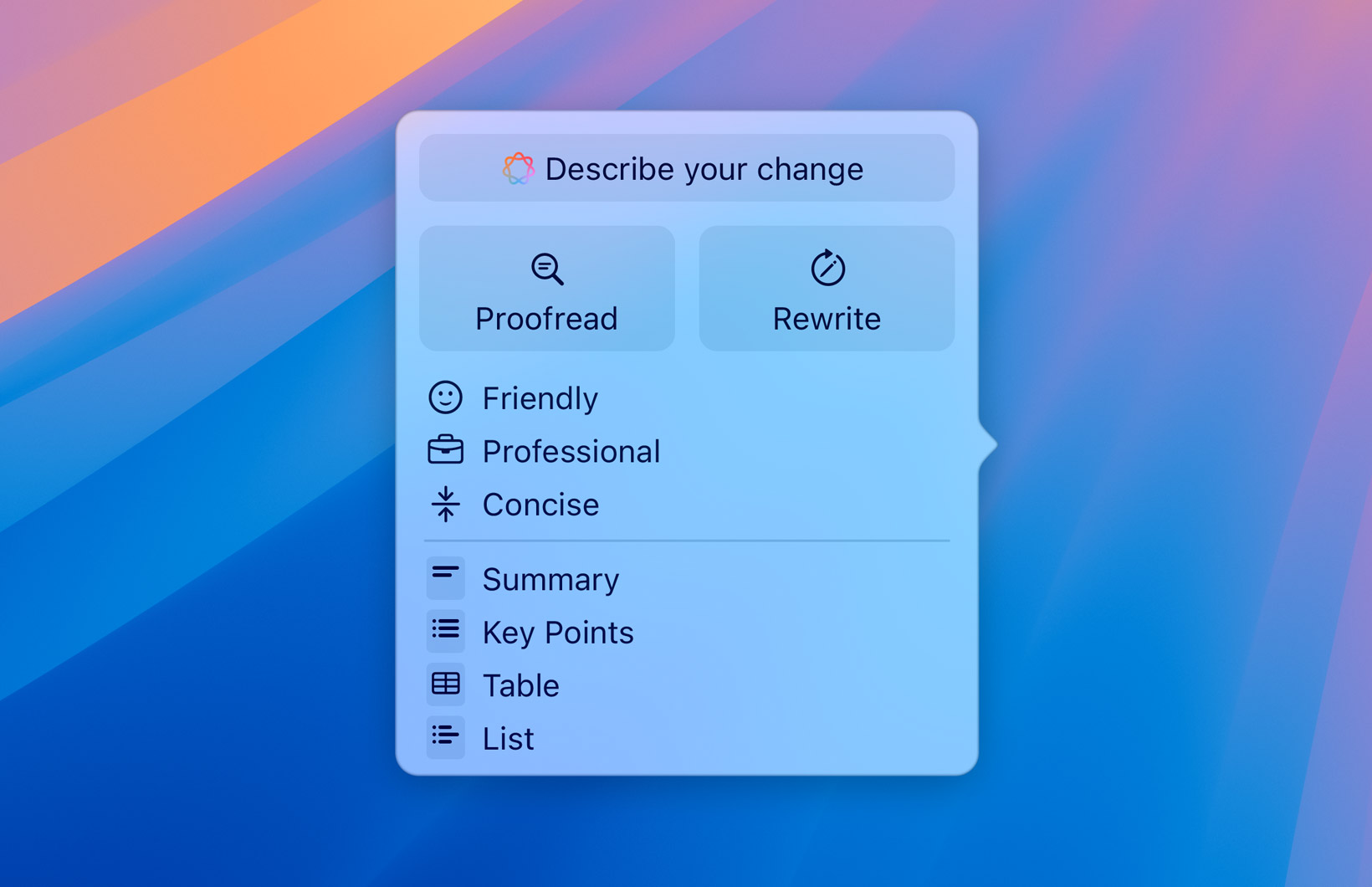By now, we have all heard the buzzword “Artificial Intelligence” or AI. While the presence of AI in a company’s portfolio can cause stock prices to skyrocket, most of our lives have remained essentially unchanged. So what exactly is AI, how can you use it now, and how can you use it to improve your day-to-day life?
What is AI Today?
AI That Talks To You Like a Human

AI comes in many forms, but most are powered by large language models (LLMs). At the simplest level, an LLM is powered by a sophisticated algorithm trained on billions of texts. This enables it to understand and comprehend information in those texts, resulting in a model that can converse with you like a human. The responses are nearly instantaneous.
AI That Can See
While LLMs are used to interpret text and language, generative models are used to comprehend visuals. Users can input text describing a visual scene and have it generated. Alternatively, some models allow you to upload images, describe changes you’d like and it will generate concepts of those changes.
Generative models work similarly to LLMs. They have been trained on billions to trillions of photos, many of which include metadata—additional text information embedded in image files. This helps the models understand what they see. For example, they can distinguish between fluffy and hairless cats. Unlike LLMs, generative models are not instantaneous and often have more noticeable imperfections.
What Can I Use AI For Today?
Your Go-To Assistant: ChatGPT
One of the most popular AI assistants right now is ChatGPT. A common use for this LLM is rewriting text. For instance, you can copy and paste a paragraph and ask ChatGPT to make it read more fluidly. You can also use it to rephrase emails. For example, you might ask, “How can I make this sound more professional for a long-time client who prefers formal communication?” ChatGPT will then provide suggestions.
Beyond rewriting, ChatGPT is a great tool for learning new things. You can ask it to share interesting facts, whether general or specific, like a cool fact about koalas. You can also use it to troubleshoot specific problems, such as figuring out why a home circuit isn’t getting power even though the breaker didn’t trip or how to fix ground beef that tastes sweet after being cooked with too much salt.
In fact, this section was rewritten by ChatGPT. Here was the first draft write of this section:
One of the most popular AI assistants right now is ChatGPT. One popular way to use this LLM is for rewriting stuff. For example, I copy pasted my original paragraph I wrote here and then told chatGPT I wanted it to read more fluidly. You can see the original paragrpah below. You can also use it to rephrase emails, such as copying an email and asking it “how can I make this sound more professional? This is a long time client that likes to be spoken to formally,” and it can provide suggestions.
Aside from rewriting, you can use it to learn something new. In fact, you can literally ask it to share a cool fact with you. Or you can be specific, and ask it to share a cool fact for you about Koalas. You can also get very specific questions, such as what are some good troubleshooting steps for when a new home circuit doesn’t seem to be getting power but the breaker didn’t break. Another example, is that you made ground beef by cooking it on high for 15 minutes with two tablesoons of salt, but it tasted sweet: how do I fix that?
All these chats are conversational, meaning that each following message recalls the information from the rest of the conversation.
Industry Specific Tools
While it would be difficult to mention every industry tool, here are some useful ones. askyourpdf.com allows you to upload a document and type conversational questions about it. This could be great for learning more about a service’s terms and conditions or to gain insights into long contracts or proposals.

Another tool is otter.ai. Otter listens to your meetings and conversations (when you allow it), transcribes the conversation and allows you to speak to Otter conversationally about the topics. It can even join Zoom meetings. It will automatically create an outline of your meetings, a summary and a list of objectives (if any were set). You can also refer back to the transcript. It’s great if you know about a topic but forget the nuanced details.
AI Is Coming To Everyone
While those are specific services you navigate to, be prepared to see AI baked into your computers and smartphones. Microsoft announced Copilot for PCs, coming to select upcoming Windows computers. However, Microsoft has come under scrutiny for how secure their implementation is.
Meanwhile, Apple previewed its AI coming to Macs and iPhones this fall, with an emphasis on privacy. ChatGPT powers the Copilot assistant. However, Apple’s AI will handle most of the requests on the device. Noteworthy features include quick access to common writing tweaks, summarizing notifications, and summarizing emails.

Why Could AI Be Considered Controversial?
While AI has the potential to transform our lives, it’s far from perfect. For starters, while it’s in its infancy, AI uses a lot of electricity to deliver its results. For example, you could use a calculator to do 15 times 15, or you can use AI. While the calculator can be done on an almost inconsequential amount of power, an AI needs to call upon the data in its LLM and then form a comprehendible sentence to deliver its answer. All this extra work requires a lot of processing power and uses a lot of electricity. It would be more energy-efficient to use a search engine as well.
AI also struggles to admit it doesn’t know an answer, leading to hallucinations to force a response. This can lead to abnormal answers that are obviously false. While search engines understand the exact content presented to users, AI is unique every time, sometimes leading to inappropriate responses.
The ethics and legality of training AI with user data are also being questioned. Multiple companies have sued AI companies for training their models with copyrighted journalism without permission and copyrighted music. There is also an ethical question of training a “robot” with true creative works of art to create “art” itself. Some grow concerned that it may kill creativity.
There are also concerns over how much control an LLM has over its users. This is especially pertinent to political questions and mental health guidance.
Is AI Coming To My Home?
AI will come to your home in new Windows computers, Mac computers and iPhones. However, we’re refraining from adding it to home integration technologies. We feel it is not developed enough for prime time. However, it is in testing. For example, we have been closely watching Josh AI, who has been diligently working on creating an AI assistant fully integrated into your home. Josh’s full potential hasn’t been realized yet.
While AI in the home is new and exciting, we’ll stick with solutions we can guarantee are intuitive and reliable. If you’re curious about how systems like lighting control, home-wide audio, and motorized shades can enhance your life at home, call us at 415-456-7000.

